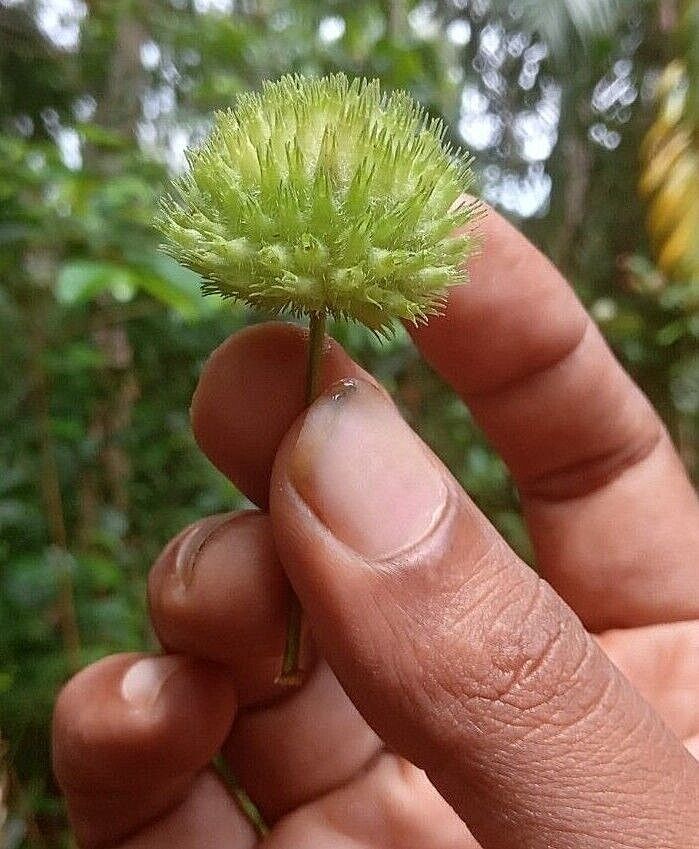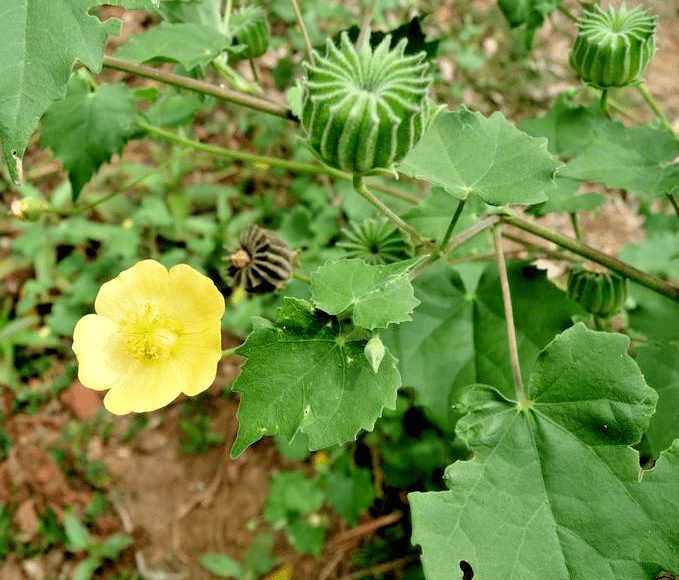Blog
Unlocking the Ancient Power of Atibala: The Healing Secrets of Indian Mallow

In the vast world of herbal remedies, certain plants stand out for their time-tested effectiveness and wide range of benefits. Today, we delve into the wonders of a plant revered in Ayurveda for centuries: Abutilon indicum. Known most famously by its Sanskrit name, Atibala, meaning “very powerful,” this unassuming herb also goes by the common English name Indian Mallow. Here in our beautiful Sri Lanka, it’s often recognized as Anoda (ආනෝදා), a testament to its widespread presence and traditional use across South Asia and beyond.
While its appearance might be humble, Atibala, or Indian Mallow, is a true powerhouse of natural wellness. Let’s explore the incredible health benefits this plant has to offer, making it a valuable addition to anyone’s holistic health journey, no matter where they are in the world.
A Plant with Many Names: Connecting Across Cultures

Before we dive into its benefits, it’s fascinating to note the diverse names this plant carries across different regions and languages. This highlights its historical significance and traditional usage in various cultures:
- Ayurvedic Name: Atibala (अतिबला) – This is arguably its most potent keyword for the global wellness community interested in Ayurveda.
- Common English Name: Indian Mallow – Easy to understand and search for by a general English-speaking audience.
- Botanical Name: Abutilon indicum – Essential for scientific accuracy and for those who prefer identifying plants by their Latin nomenclature.
- Sinhala (Sri Lanka): Anoda (ආනෝදා) – Connecting with our local understanding and heritage.
- Tamil (India): Thuthi (தூது) – Another important regional name within its native range.
The Remarkable Health Benefits of Atibala (Indian Mallow)
For centuries, traditional medicine systems have utilized various parts of the Abutilon indicum plant, particularly its leaves, roots, and seeds, for their therapeutic properties. Here are some of the key health benefits that have stood the test of time:
1. Natural Pain Relief and Anti-Inflammatory Action
One of the most celebrated uses of Atibala is its ability to alleviate pain and reduce inflammation. The plant contains natural compounds that can help soothe various types of discomfort, from joint pain and muscle aches to headaches. Traditionally, a paste made from the leaves or roots is applied topically to affected areas, offering a natural and gentle approach to pain management.
2. Promotes Wound Healing and Skin Health
Atibala possesses remarkable wound-healing properties. Its leaves contain compounds that can help to accelerate the closure of wounds, prevent infections, and promote the regeneration of healthy skin tissue. A poultice of the leaves is a traditional remedy for cuts, bruises, and other minor skin injuries. Furthermore, its soothing properties can help calm irritated skin conditions.
3. Supports Respiratory Health
In Ayurveda, Atibala is valued for its beneficial effects on the respiratory system. It is traditionally used to help relieve coughs, soothe sore throats, and ease congestion. Its expectorant properties can aid in clearing mucus from the airways, making breathing easier.
4. Aiding Digestive Wellness
Atibala has been used traditionally to support healthy digestion. It can help to soothe the digestive tract, relieve mild stomach upset, and promote regular bowel movements. Its gentle nature makes it a well-tolerated remedy for various digestive concerns.
5. Nourishing and Strengthening Tonic

True to its name “Atibala” (very powerful), this plant is considered a nourishing tonic in Ayurveda. It is believed to help strengthen the body, improve vitality, and boost overall immunity. Preparations made from Atibala are often recommended to support general well-being and resilience.
Integrating Atibala (Indian Mallow) into Your Wellness Routine
While traditional uses abound, it’s essential to approach herbal remedies with awareness and respect. If you are considering incorporating Atibala (Indian Mallow) into your wellness routine, it’s always best to consult with a qualified healthcare professional or an experienced Ayurvedic practitioner. They can provide guidance on appropriate usage, dosage, and potential interactions with any existing health conditions or medications.
From the ancient wisdom of Ayurveda to its potential in modern wellness practices, Atibala (Indian Mallow) continues to offer a wealth of health benefits. By recognizing its diverse names and understanding its traditional uses, we can appreciate the enduring power of this remarkable plant and its contribution to global well-being.
Disclaimer: This article is for informational purposes only and does not constitute medical advice. The benefits described are based on traditional uses and available literature. Always consult with a qualified healthcare professional or certified herbalist before using any herbal product, especially if you are pregnant, nursing, or taking other medications.

Discover more from Nath Mart
Subscribe to get the latest posts sent to your email.
